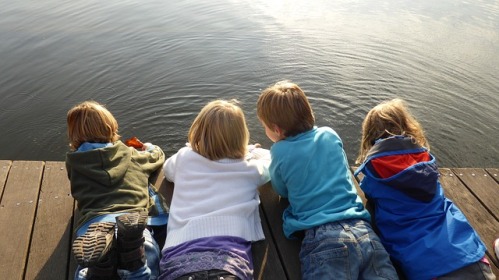Mindfulness is the practice of bringing one’s awareness to the present moment

There is some evidence that mindfulness may be helpful in reducing anxiety, depression and stress, as well as improving wellbeing, attention, focus and cognitive skills.
The Government are funding randomised control trials in more than 200 schools across the country to find out if mindfulness can effectively reduces stress and promote wellbeing. The trial will focus on 8 to 12 year olds, with a separate program teaching teens about anxiety, depression, and other mental health issues.
Preventative programs will be rolled out at 100 primary schools and 50 secondary schools this summer to teach children about mindfulness, relaxation and breathing techniques and protective behaviours, which allow young people to recognise early warning signs of not feeling safe and how and where they can get help.
In typical mindfulness lessons, children will be taught to think of disturbing thoughts as “buses” that will move away. They will also learn relaxation and breathing exercises to help reduce anxiety.
This comes in response to a speech delivered by Theresa May in January in which she announced a package of measures to transform the way we respond to mental illness in young people, including a programme of randomised control trials.
Children are facing increasing pressure from schools to perform better in maths and literacy. This has led to concerns that the pressure of this, along with influences from the internet and social media, has resulted in rising levels of depression and anxiety amongst children and young adults.
According to the charity, YoungMinds, the rates of depression and anxiety among teenagers have increased by 70 per cent in the past 25 years, particularly since the mid 1980’s.
- Nearly 300,000 young people in Britain have an anxiety disorder.
- A&E presentations of self-harm by those aged 17 and under have risen by 30% since 2003-04.
- 1 in 10 suicides in the UK are by those aged 15-24.
- Up to 160 young people under the age of 20 die by suicide in England each year, 60-70 of whom are under 18.
- Only 14% of suicides aged under 20 have been in contact with specialist mental health services.
There is growing evidence that teens are in the grip of a mental-health crisis
With celebrities increasingly talking openly about their own mental health, awareness of the issues is much greater and as a consequence there is less stigma attached, making it easier for teenagers to acknowledge their problems. But does this really skew the figures?
Research by YoungMinds found exams are a significant trigger for mental illness in young people. Pressure comes from not only from schools, but from parents as well, with both giving the impression to young people that the rest of their lives will be determined by their results. Whilst education is important, and no one can deny that, it is perhaps ill construed to leave young people with the feeling that there is nothing beyond.
Whilst it is known that children in care are particularly susceptible to mental illness, children from stable family homes can be just as vulnerable. Often children who are privately educated feel the pressures of their privileged education and the expectations put on them because of it.
The internet has grown up at the same time as the increase in teen mental illness and is often cited as part of the problem, with cyberbullying and worries about body image (created partly by selfie culture) being seen as triggers. This technology is new, fast moving and very visible in young people’s lives. Adults struggle to keep up and find managing their children’s use of social media and the internet difficult.
Social media doesn’t create bullying and neither does it create anxieties about body image. Bullying rates haven’t risen in the last 10 years, but technology gives new forms to these age-old problems and can amplify them. We all know how Facebook can make us feel. Everyone seems to be eating better food and hanging out with cooler people than us. This can make us feel vulnerable and it adds to our already present anxieties and social hang-ups.
According to the Government’s proposal, the aim of these latest trials is to better inform the effectiveness and implementation of these techniques to schools that may be considering offering this sort of activity in the future.
What remains to be seen is why children feel so at odds with the world and will teaching them mindfulness help?

I think mindfulness can’t hurt. Something needs to change, and this might just be a teeny tiny step in the right direction. 200 schools is a drop in the ocean though, a suspicious person like me would think this more about government PR than giving a damn about the children 🙁
It is a teeny step, but I truly hope they see the right results so it can be integrated into more schools.